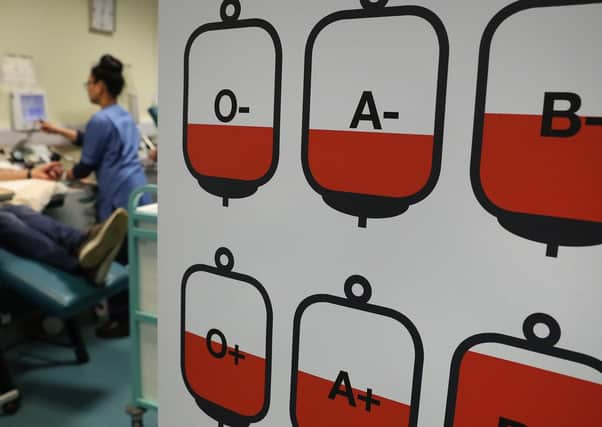Don’t assume that everybody feels equally respected and protected - Christine Jardine


Until, that is, I began to feel as if I am living in it.
Every morning there is that brief second when I waken up, before I put on the radio or TV, when I think: “I wonder what is happening in the world?”
Then I remember.
And I know it is the same, indeed much worse, for so many people for whom the past two months have been an experience they would never have anticipated, and are hoping is over soon.
Advertisement
Hide AdAdvertisement
Hide AdBut increasingly my concern over Covid-19 has been matched by the fear that, while me must not begin to drop our guard prematurely, we must remember that there are other issues which need our attention.
None of them have gone away while we try to find our way out of the maze of coronavirus health threats, lockdown problems and personal and global economic implications.
And we neglect them at our peril.
This week one of them jumped out in front of me when a friend told me that he is restricted in when he can give blood.
It had been a conversation, almost inevitably, about Covid-19.
There had been an item on the news about the importance of blood plasma in tackling the virus and finding a vaccine.
My friend would like to help but regardless of how rare his blood group might be, and how healthy he is, he cannot donate because he is gay.
I was stunned. Surely the science had allowed us to leave all that false HIV-related prejudice behind us with medical advances and interventions which has reduced the transmission rate from long-term patients to practically zero.
So I checked and to be fair the NHS site says all men must wait three months after having sex with another man before donating.
Advertisement
Hide AdAdvertisement
Hide AdThe rule applies to every man, regardless of their sexual orientation, whether they’re in a stable relationship or whether they use protection such as condoms or pre-exposure prophylaxis.
But the reality is that as someone in a long-term committed single-sex relationship that almost automatically removes my friend from the donors’ list.
I appreciate that for many people the mere mention of the issue raises the spectre of the contaminated blood scandal of the 1970s and 80s which claimed more than 1,000 lives.
That must never be excused, forgotten, or allowed to happen again.
That failure of process which allowed unscreened and contaminated blood from the United States to be used was unforgiveable.
That blood donation conversation stayed with me long after we had ended our call and I was focusing on work again.
The question I was left asking myself was whether we are allowing mistakes made then to tie our hands in tackling a problem now?
Surely both the science and the safeguards have improved to the point where we can be sure that every pint of blood is safe?
Advertisement
Hide AdAdvertisement
Hide AdAnd I do not mention this to challenge the rules on blood donation for the gay community.
No.
At the moment everything we are able to do, when we can go outside, who we can see and from what distance, is dictated by science.
This must be too.
But are we sure that we are not allowing prejudice to intervene, even slightly?
I find it worrying that we constantly congratulate ourselves on how well we are doing as a liberal society, and whether we will do this to the extent that we let our progress slip.
Yesterday (Sunday) was International Day against Homophobia, Biphobia and Transphobia.
I would not suggest for a minute that safeguards to ensure donated blood is healthy is in any way homophobic. But we must surely recognise that there are still elements of our lives which label and marginalise communities in our societies?
In the stress and demands of this emergency we should not assume that everybody feels equally respected and protected.
One of the phrases I often hear people use is that you have to walk a mile in someone’s shoes to understand the issues they face.
Advertisement
Hide AdAdvertisement
Hide AdIronically one of the things this crisis has done is to give us all the opportunity to walk in the same shoes regardless of our background, race or sexual orientation.
And in escaping it we must make sure that none of those characteristics is used to marginalise or deny any individual or group the safeguards and security that we all crave. And deserve.
These past two months have posed problems for us all that we never thought we would have to face, and demanded strength we did not know that we had.
But we are not there yet.
In striving to reach the moment when we can switch on the radio one morning and hear that there is finally something else happening in the world we would do well to remember the words of American politician and sociologist Daniel Patrick Moynihan: “The central conservative truth is that it is culture, not politics, that determines the success of a society. The central liberal truth is that politics can change a culture and save it from itself.”
Those words have perhaps never been so appropriate.
Comments
Want to join the conversation? Please or to comment on this article.